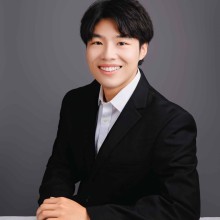Architecting Hybrid Quantum-Classical Computer with Machine Learning
Quantum Computing has the potential to solve classical intractable problems with higher speed and efficiency. To unlock its full potentials and enable practical applications, quantum components need to work with classical components which perform necessary parameter optimization, program compilation and error correction. The hybrid system also needs to be optimized with holistic awareness. On the program level, we propose QuantumNAS which designs the program (ansatz) for variational quantum algorithms. QuantumNAS decouples the ansatz search and training process and searches for the most robust ansatz with learning-based approach using feedback from noisy devices. On the compiler level, we propose FPQA-C, a compilation framework for Field-Programmable Qubit Array implemented by reconfigurable atom arrays. It supports architecture with one fixed and multiple movable arrays. FPQA-C leverages the flying ancilla technique to perform the routing of 2Q gates and achieves low overall 2Q gate number and circuit depth. On the hardware level, we also design SpAtten, a classical accelerator target for ML-based quantum error correction decoding. The accelerator supports different sizes of ML models with shared memory and leverages on-the-flying activation pruning to boost efficiency. Finally, I will conclude with an overview of my prior and ongoing work, and my research vision toward ML-assisted classical-quantum architecture design.

Hanrui Wang
MIT on May 5, 2023 at 2:00 PM in EB2 3011
Hanrui Wang is a fifth-year Ph.D. student at MIT EECS advised by Prof. Song Han. His research focuses on quantum computer architecture, machine learning for quantum systems, and efficient ML. His research has been recognized by ACM student research competition 1st place award, best poster award at NSF AI Institute, Best Presentation Award as a DAC Young Fellow, MIT homepage spotlight and appears in top computer architecture, design automation and ML conferences such as MICRO, HPCA, DAC, ICCAD and NeurIPS. His co-authored paper received ICML RL4RL Best Paper Award. He is the recipient of Qualcomm Fellowship, Unitary Fund, and Nvidia Fellowship Finalist. He is the creator of TorchQuantum library which has been adopted by IBM Qiskit Ecosystem and Nvidia cuQuantum Appliance. He is also the co-founder of QuCS lecture series for quantum education.
The Department of Electrical and Computer Engineering, sometimes in conjunction with other NC State departments makes an ongoing effort to invite the brightest experts from academia, business, and research to come speak and share their ideas, experiences, and research with faculty, students, and alumni at NC State.
